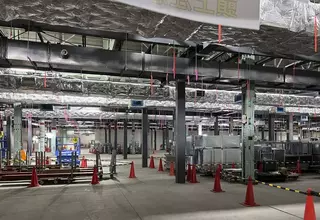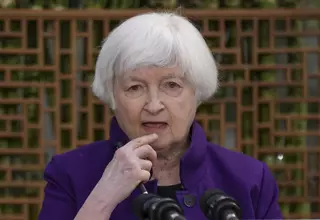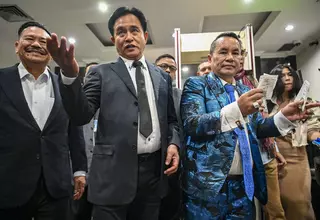Banking on Changing the Future

The future of banking is a hotly debated topic. Views on where banking is going are as diverse as the evolving customer needs banks are now seeking to serve. While there are different opinions on the pace of change, the one point of consensus seems to be that continued change is a certainty.
Key traditional players in the banking and financial services sector are increasingly being challenged by customers and new providers to innovate. However, the changes driven by the need to innovate may not be linear.
Many established players are urgently modernizing their products, portfolio options, systems, processes and customer touch points – with the fastest movers achieving some competitive disruption.
In parallel, new entrants into banking and payment services, unencumbered by legacy systems, are shifting the goal posts. Institutions that are slow to move may risk significant dislocation as the entire environment around them changes.
Technology that enables efficiencies through automation, data analytics that help banks understand customer needs and digitalization that is changing how banks find and engage with customers are key factors shaping the banking landscape. From robo advisors to alternative payment systems, the burgeoning FinTech industry is changing everything.
Across that landscape, regulators and regulations must both moderate the pace of innovation and encourage it. Fundamentals of stability, transparency, traceability and customer protection remain critical as the bedrock of the financial system. Regulators across Asia and around the world are working to ensure those fundamental elements remain front and center.
Senior banking and financial services leaders gathered behind closed doors last month at a Bloomberg "Future of Banking" event in Singapore to discuss these dynamics with Vikram Pandit, founder and chief executive of operating company Orogen Group and former Citigroup chief executive.
He argued that as the banking and financial services industry undergoes perhaps the most significant changes in recent years, those that see opportunity are modernizing rather than being dislocated.
While everything that has happened in other sectors in terms of customer preferences and technology is coming to the financial sector, he also highlighted that the more things change, the more they stay the same. Banks must focus on customers, what they need and how they want it delivered to them.
Continued relevance and the winners and losers in the new banking environment will be determined by how well banks know and understand their customers.
Modernizing involves a broad sweep of changes in how banks structure, deliver, process and manage the products and services customers are increasingly demanding.
Through its services, Bloomberg for example is seeing first-hand how institutions are increasingly looking for ways to consolidate operations across the front, middle and back office to ensure seamless workflows so they can achieve optimal operational efficiency.
Efficiencies can be achieved through machine learning and automation of processes, but serving customer needs may at once involve consolidation and unbundling.
Bundled services that have typically been offered in one place by banks no longer have to be delivered that way, Pandit observed. Services can now be fragmented across different providers that are good at different things.
This means institutions must now learn how to co-exist with diverse providers, to partner to meet customer needs and to figure out how to maintain the key relationship with their customers in that banking ecosystem.
Ultimately, customers should be the major beneficiaries of the sweeping changes happening in the banking sector. Regulation will guide how and when those benefits are offered while technology will underpin the efficiencies behind how those services are shaped and delivered. Banks have a vested interest in ensuring their future is based on helping customers shape their own financial futures.
Andrea Mosconi is head of Bloomberg, Asean
Tags: Keywords:POPULAR READS
Nissan to Make Next-Generation EV Batteries by Early 2029
Solid-state batteries are widely seen as the next step for EVs.Airlangga Set to Extend Leadership in Golkar After Election Success
Under his leadership, Golkar rose to the second position in the legislative polls and successfully made Gibran the elected vice president.Yellen Says Iran's Actions Could Cause Global 'Economic Spillovers'
Iran's missile attack on Israel early Sunday came in response to what it says was an Israeli strike on Iran's consulate in Syria.Takeaways from Prabowo's Responses to Legal Motion Contesting His Election Win
Part of the argument addresses the claim that the candidacy of Gibran Rakabuming Raka, Prabowo’s running mate, is unlawful.Prabowo Camp Cites ‘Procedural Error’ in Legal Challenge by Rival Candidates
The Constitutional Court's main task is to address alleged discrepancies in vote tallies, which neither of the plaintiffs challenged.Popular Tag
Most Popular






















